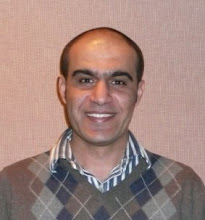In a recent media statement, the Minister of Health of the Kurdistan Regional Government announced that most of his fellow citizens “have mental diseases” . The minister presented this diagnoses during a conference to review the bill for a mental health act in Kurdistan. It was obvious that the minister wanted to make a point about the necessity of such an act for Kurdistan given that “90% of the Kurdish people" went through terrible atrocities like the Anfal and the gas attack on Halabja in the 80s of the last century.
The good intention of the minister of health to provide strong argument for the passage of the bill in the parliament doesn’t legitimize the betrayal of his scientific backgrounds. The minister, better than anyone else, knows the meanings of most, several, few and none in scientific language. The fact that the minister says “most” without providing scientific evidence brings into questions his scientific qualifications.
The only study done in the field of mental health in Iraq and Kurdistan was the Iraqi Mental Health Survey implemented by the World Health Organization issued in 2006/2007 in partnership with the Ministries of Health in Iraq and Kurdistan. The survey was conducted among 9,345 Iraqi families. The Kurdish families included in the study represented 16% of the sample. The study found that the life time prevalence of any affective disorder in Kurdistan was 8.97%, and that of any anxiety disorder 15.85% . The basic question given these numbers is; are these figures qualifying the Kurdish people to be diagnosed as having mental illnesses or psychiatric diseases?
Furthermore, in most of the standard classifications of mental illnesses including the International Classification of Diseases, mental illnesses are not classified as diseases, rather they are called disorders. There may be only subtle differences between the two terms. But at the ground and at the personal levels of people affected by mental disorders, it means a lot in terms of discrimination and stigma. The problem with the minister’s statement doesn’t only lie in its scientific ignorance, but also in its ramification for discriminating against people with mental illnesses in Kurdistan.
The minister of health need to be more cautious about his statements and not to forget his scientific backgrounds in presenting figures and numbers about health issues in Kurdistan.
http://www.sbeiy.com/ku/newsdetail.aspx?id=29321&cat=1
www.emro.who.int/iraq/pdf/imhs_report_en.pdf
Sunday, August 29, 2010
Saturday, August 7, 2010
Stop Throwing Money at Our Health Problems
Today I was reading the local newspapers in Kurdistan and two different news attracted my attention. The first one was from the paper of one of the ruling parties in Kurdistan (Kurdistany Nwe), featuring the selling of an MRI machine costing one million, eight hundred thousands of dollars. The other news was from Rudaw newspaper, having a piece about the health consequences of using sewage water for growing vegetables in the governorates of Erbil.
When I was reading those pieces of news, I was developing an image of the poor man, lady or kid, who consumes contaminated vegetables waterd by the dirty water, and developing a pain in the back, lung, stomach or having a seizure because of a haydatid cyst in those locations.
Our government will go bankrupt if it continuous to ignore the basic human needs of the population of clean drinking water and sanitation. There is no point in throwing money at our simply solved problems that arise from inattention to basic health infrastructure.
This is if we ignore the huge amount of money spent on the scan. I googled prices of the machine and I found figures way less than what (kurdistany nwe) presented.
When I was reading those pieces of news, I was developing an image of the poor man, lady or kid, who consumes contaminated vegetables waterd by the dirty water, and developing a pain in the back, lung, stomach or having a seizure because of a haydatid cyst in those locations.
Our government will go bankrupt if it continuous to ignore the basic human needs of the population of clean drinking water and sanitation. There is no point in throwing money at our simply solved problems that arise from inattention to basic health infrastructure.
This is if we ignore the huge amount of money spent on the scan. I googled prices of the machine and I found figures way less than what (kurdistany nwe) presented.
Subscribe to:
Posts (Atom)











